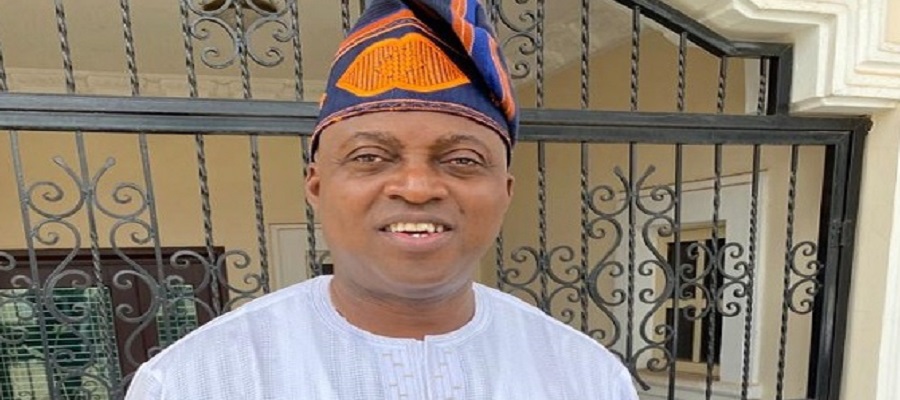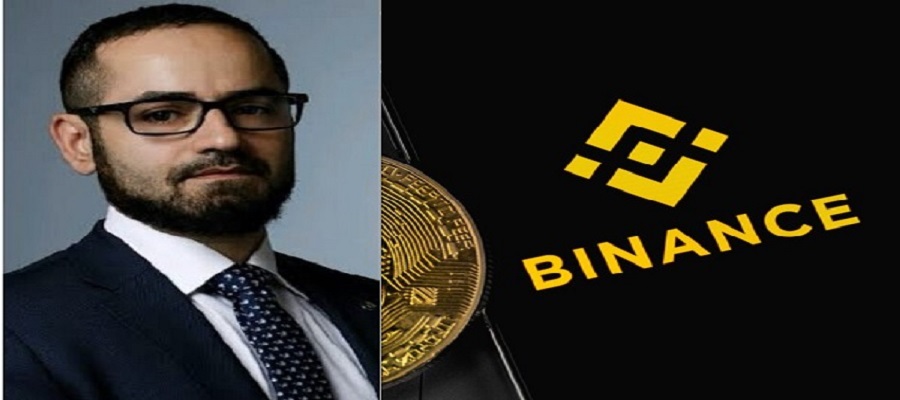News
Africa Remains Tech Colonies, says 4IR Commissioner

African countries largely remain technology colonies, due to the large number of technological-intensive services that are still outsourced from international countries.

This was the word from Rendani Mamphiswana, senior technical advisor on energy at Sasol and commissioner for the Fourth Industrial Revolution Presidential Commission, speaking at the China-Africa Joint Research and Exchange Programme Webinar Series hosted by the South African Institute of International Affairs.
Mamphiswana unpacked the findings of research he conducted in partnership with Meti Bekele, senior project officer at the Ethiopian Academy of Sciences, focusing on fourth industrial revolution (4IR) challenges and prospects in Africa.
Highlighting the low infrastructural development conducive for 4IR initiatives across the African continent, Mamphiswana pointed out that the continent’s status is still that of a technology colony – meaning Africa is highly dependent on other countries for the technological innovativeness required to elevate industries to new levels of growth and competitiveness to ensure 4IR contributes significantly to the continent’s economy.
Among the implications of being a technology colony are that the unemployment rate rises and fewer tech activities are executed by locals in the economic sector, he noted.
“Infrastructure for 4IR is quite low on the continent and in some areas it’s not there at all. We also see that due to non-competitiveness of some of our industries, there is a trend towards de-industrialisation and this makes the continent very poor from an investment potential perspective.”
Referencing Africa’s three most powerful economies – SA, Egypt and Nigeria − Mamphiswana pointed out that all three ranked from the middle to the lower tier in terms of manufacturing activities, in comparison to the rest of the world.
Adoption of modern methods of manufacturing, knowledge and technology transfer of these countries is low.
“What we have observed from the progress made by countries like China is that they have invested heavily in technologies to improve productivity and thus upgrade their existing industries, making them more developed in what has become a dynamic and competitive economy.
“There is a need for African countries to adapt and re-design technologies for local challenges. It’s not enough to have the tech itself and hope it will achieve certain objectives − it’s about the suitable business model that is able to deliver that tech to meet market requirements for a specific country.”
In terms of job creation in the digital economy, Mamphiswana pointed out that if 4IR skills and technologies are not adapted at competitive levels, the revolution might render Africa’s workforce obsolete and reinforce already existing inequalities – with educational sectors such as higher education still being too slow to augment 4IR skills, including in SA.
“Adoption of new technologies is expected to create a balance between the creation of new jobs and the loss of the existing jobs.
In Africa there might be a lag in this balance and our skills sets are still quite low, resulting in a low-skilled workforce – making it challenging to deploy most employees in higher-end jobs that will require them to engage with emerging technologies.”
On the other hand, with Africa having the largest and youngest population, 4IR has the potential to spur accelerated economic growth known as the “demographic dividend” – defined as the accelerated economic growth that can occur as a population age structure matures. This could provide an opportunity for Africa’s youth to transition into new and emerging career fields, he continued.
One of the prospects for Africa is the ability to leapfrog because some industries don’t have legacy technologies, which provides an opportunity to use emerging technologies to launch certain new markets and industries, which don’t necessarily have to compete with legacy infrastructure and investments.
“The digital divide is quite strong on the African continent so there has to be a concerted effort to invest in bridging the digital divide to be able to harness technology and enhance informal economic activity and transform it into the formalised economy to enable larger revenue generation within sectors.
There is a need to embrace 4IR in new and simple settings where there is an opportunity to launch low-cost infrastructural development, which will impact citizens’ lives and contribute to the continent’s economic development,” he concluded.
News
Raji Takes over as NBTI Boss, Pledges to Drive Technological Growth

Dr. Kazeem Kolawole Raji, director general, National Board for Technology Incubation (NBTI), has promised to engage in the empowerment of youths in digital and technological innovations for the nation’s economic growth.

Raji, who stated this when he officially took over the mantle of leadership from immediate past director general, in Abuja, explained that the Board remained an economic base in which the Gross Domestic Product, GDP, of the country could be grown.
He said, “Presently, what we are doing is electromechanical. And I’m bringing new initiatives on emerging technologies. Because when you talk about technology today, you talk about AI, that’s artificial intelligence. You talk about nanotechnology. You talk about blockchain technology. And if you look at what is happening today in Nigeria, you see that a lot of our youths, if you tap their brains, they can become useful to this country and to themselves, rather than engaging in nefarious activities.
“And most importantly, we are a knowledge-based economy where the frontier, top-level elites of most Nigerian youth can be put into place and help drive the economic base of Nigeria, grow our economy, and increase our GDP.”
The director general pointed out that the Board had offices in all 36 states of the Federation and 15 extensions in some states and would ensure grassroots technological advancement.
“First and foremost, let me thank His Excellency President Bola Ahmed Tinubu GCFR for appointing me as the new Director General and CEO of the National Board for Technology Incubation, Abuja. Presently, we have offices in 36 states of the Federation and 15 extensions in other states. That means if you add 36 plus 15, you’d have around 51 centers.”
“These centers are meant to advance technological innovation and skillsets for our youth to enjoy. If you look at it presently, MBTI is tasked with establishing and managing technology incubation centers in Nigeria. And the skillset of most of our youth in Nigeria today shows that many come up with a lot of innovations.”
“Just like very recently, last month in January, in Nigeria, an incubatee of MBTI, Mr. AbdulLateef Olaosebikan, won $1 million in a keenly contested competition in Abu Dhabi. He called that prize the Zaihe Sustainable Prize Award, and he won it in the food category.”
“He competed with 5,980 other applicants from all over the world. That is to show you the kind of skillset in Nigerian youth. And that’s part of the reason why, when Mr. President said he’s going to draw water from the dry well, it means technology. Because the only way you can draw water from a dry well is through technology. And that technology is what I’m here to drive,” he stressed.
On the proper packaging of products, Raji stated that a memorandum of understanding had already been signed with the Kwara State Government in that regard.
“Just last week, I was in Kwara State to sign a memorandum of understanding with the Kwara State government with our incubatees and post-incubatees. One of the things I discovered there is about packaging and how we can package our products so that they can rival international products.”
“Presently, we are engaging with NAFDAC and the Standard Organization of Nigeria to achieve that kind of product quality. Because part of the mandate of MBTI is to commercialize the research products coming out of our incubatees and the National Board for Technology Incubation.”
“So, I can assure you, with the caliber of people at the Standard Organization of Nigeria and NAFDAC, partnering with them, by next week or so, we’ll be engaging with them officially on how we can work together to help our entrepreneurs package their products well in view of international standards.”
“You don’t have to go somewhere else to look for any product. If you see the kind of products coming out of Kwara State, you will marvel. Just very recently, someone came up with the idea of a trytractor.”
“And the trytractor, if you see the kind of output coming from this trytractor, if you help this person commercialize this product, imagine Nigeria as an agrarian nation and how we can make use of this. We won’t need to go outside and import tractors again if we develop our own local entrepreneurs. That is the reason why I’ve always been advocating, even while I was Executive Director at Nigerian Communications Satellite, that Executive Orders 003 and 005 on ICT local content should become an Act of Parliament.”
“It’s not just an Executive Order alone. They need to become an Act of Parliament so that if they become law, Nigerians will embrace our own local technology. We won’t have to go outside to rely on foreign technology.”
“And if you are working on your own local technology, you will be assured that capital flight will become a thing of the past, and we can shore up our foreign reserves and address the fluctuation of the Naira and Exchange Rates today in Nigeria,” Raji further explained.
Earlier, Dr. Chukwu, the immediate past director general of NBTI, said deliberate efforts were made for grassroots development.
“NBTI is an agency that spans the whole nation, and there is a grassroots project that, at the end of the day, if we put in our best, people will be able to benefit from the dividend of democracy. Thank you very much.”
“I am here this morning to start the handing over process, and usually, in the handing over, I’m expected to have inputs from departments, units, zonal offices, and centers to ensure that the handing-over note is comprehensive enough for the incoming DG, CEO.”
“So, on my part, I’ve been able to do a template that will guide the departments, the heads of units, zonal directors, and center managers to submit their inputs. That was what even delayed me a bit. Though I have it in soft copy, for the departments and others, I will give them a hard copy here.”
“Let me also use this opportunity to welcome my brother to the National Board for Technology Incubation. National Board for Technology Incubation is an agency that cuts across the whole nation, and there is a grassroots project that, at the end of the day, if we are able to put in our best, our people will also be able to benefit from the dividend of democracy. Thank you very much,” Chukwu said.
News
WiSolar Offers Base Pay for Nigerian Partners

WiSolar, African provider of solar-as-a-service solutions, has announced a new programme for its Partner Merchants.

The company has implemented a base pay structure for Partner Merchants and collaborated with Ecobank Nigeria to ensure seamless and fast mass disbursements.
This programme, according to the business, is part of WiSolar’s continued efforts to strengthen its merchant network, which drives solar adoption throughout Nigeria.
WiSolar will use Ecobank Nigeria’s digital payment infrastructure to provide rapid and reliable payouts to its increasing network of Partner Merchants.
The arrangement avoids payment delays and gives businesses rapid access to their earnings, according to WiSolar.
It added: “By implementing a base pay, the company ensures that Partner Merchants receive a stable income, complementing their commission-based earnings from solar product sales and installation.”
Preye Irims, service architecture and partner enablement at WiSolar, explained further: “Our Partner Merchants are at the heart of our mission to make clean, affordable solar power accessible to more Nigerians.
“Introducing a base pay is a way of recognizing their efforts and providing financial stability as they help accelerate the transition to solar energy. With Ecobank Nigeria’s support, we are ensuring that payments are processed efficiently and securely.”
News
Binance Chief Insists Some FG Officials, Reps Demand $150m Bribe

Tigran Gambaryan, top official of Binance, at the weekend, maintained his stance on the bribery allegations against some Nigerian government officials and House of Representatives members.

Tigran Gambaryan
Gambaryan insisted Nigerian officials demanded bribes from him despite the denial of the Federal Government.
Recall that Gambaryan, who is Binance’s head of financial crime compliance, was detained in Nigeria from February to October 2024.
Nigerian government said his arrest was part of a broader investigation into alleged money laundering and economic destabilisation attributed to Binance’s activities in Nigeria.
On Friday, while recounting his initial experience on the issue on Twitter, Gambaryan accused some Nigerian lawmakers of demanding substantial bribes in cryptocurrency.
He specifically accused three lawmakers of soliciting a $150 million bribe from him, naming Philip Agbese, Ginger Onwusibe and Peter Akpanke as the three federal legislators who demanded the huge bribe from him to allegedly forestall his arrest and prosecution.
He further alleged that Nuhu Ribadu, National Security Adviser, sought significant payouts from Binance for his political ambition.
But in a swift response, Mohammed Idris, minister of Information and National Orientation, dismissed Gambaryan’s allegations as “outrageous” and “defamatory”.
Idris explained that the Nigerian government had rejected a $5 million offer from Binance intended to secure Gambaryan’s release, opting instead for a more favourable settlement with the US government.
He said Gambaryan’s claims lacked credibility and appeared to be an attempt to discredit Nigerian officials.
But Gambaryan in his latest post on the development on Saturday on his X, said the Federal Government used him as leverage to negotiate a beneficial settlement with the US government.
He wrote, “I was invited by the Nigerian FIU to a meeting in January. Last time I checked, they are part of the Nigerian government. House members also invited us to the meeting. Last time I checked, the legislative branch is also part of the Nigerian government.
“You said the second part was part of a probe? Lol. So when you invited us to a friendly meeting, you even lied about that. I was in a safe house for a month, watching TV, while you were trying to use me as leverage. You then panicked and knowingly charged me with blatantly false accusations.
“So I was released on humanitarian grounds? At least you’re finally admitting the need to release me. Last time you posted, you claimed my health was fine and that there was nothing wrong with me”.
The crypto expert further stated, “You investigated? Yet you didn’t take a statement from me? A person with direct knowledge. What a joke.
“You dragged my name through the mud for the past year with zero evidence against me, nearly killed me, and caused trauma to my family. And now you have the nerve to talk about defamation?
“I’ll put my credibility on the line anytime. In court? You mean like last time, when your attorneys didn’t even show up to the human rights suit in Abuja?
“Get your facts straight. I am done with this foolishness. I said my part. I’ll be off Twitter now since it’s pointless to argue with evil.”
While insisting that his claim was factual despite the denials, Gambaryan added, “What I shared was factual, based on my personal experiences and conversations with those who have direct knowledge of the events I discussed; information that was shared with both Nigerian and US law enforcement.
“So please, allow me to leave this behind and find peace”.
The Binance executive said it was the responsibility of law enforcement agents in both Nigeria and the US to see the investigation into the matter through.
He said he is no longer in law enforcement, adding that the responsibility of seeing this through to a logical conclusion now falls on those still serving in the United States and Nigeria.
He added, “Many requested that I stay on and provide further commentary on the issues I posted about yesterday (Friday). Here’s the hard truth: what I shared was meant to fill in the gaps left by Wired and NPR’s reporting.
“The reality is that last year was incredibly painful for me and my family. I dedicated my life to fighting crime as a Special Agent with the United States Department of the Treasury and as a compliance professional. It was an honour to serve my country and it was a blessing that they came to my rescue and mobilised the full force of the US Government when I was in need.
“Being dragged through court on “outrageous, baseless, and trumped-up charges”, he posited, “didn’t just hurt me but also brought immense pain to my family.
“I don’t want to see my kids cry because I’m not around. I don’t want to see videos of my 75-year-old mother on television in tears. I don’t want to see my wife crying on TV. I want to put this nightmare behind me and move on.”

 E-Financial2 days ago
E-Financial2 days agoSERAP Gives CBN 48-Hour Ultimatum to Withdraw ATM Fee Hike

 E-Financial2 days ago
E-Financial2 days agoFG Seeks Fresh $300m Loan from World Bank for Health Security

 General News2 days ago
General News2 days agoFG Drops Merger of NCAA, NAMA

 News2 days ago
News2 days agoBinance Chief Insists Some FG Officials, Reps Demand $150m Bribe

 News2 days ago
News2 days agoinDrive Unveils Cashless Bank Transfer Feature in Nigeria

 E-Financial2 days ago
E-Financial2 days agoCardinalStone Acquires Radix Pension Managers

 Telecom2 days ago
Telecom2 days agoNITDA Pledges to Foster Innovation with Cloud Infrastructure and AI Applications

 Telecom16 hours ago
Telecom16 hours agoToriola, MTN Nigeria CEO again Defends Tariff Hikes amidst Backlash














